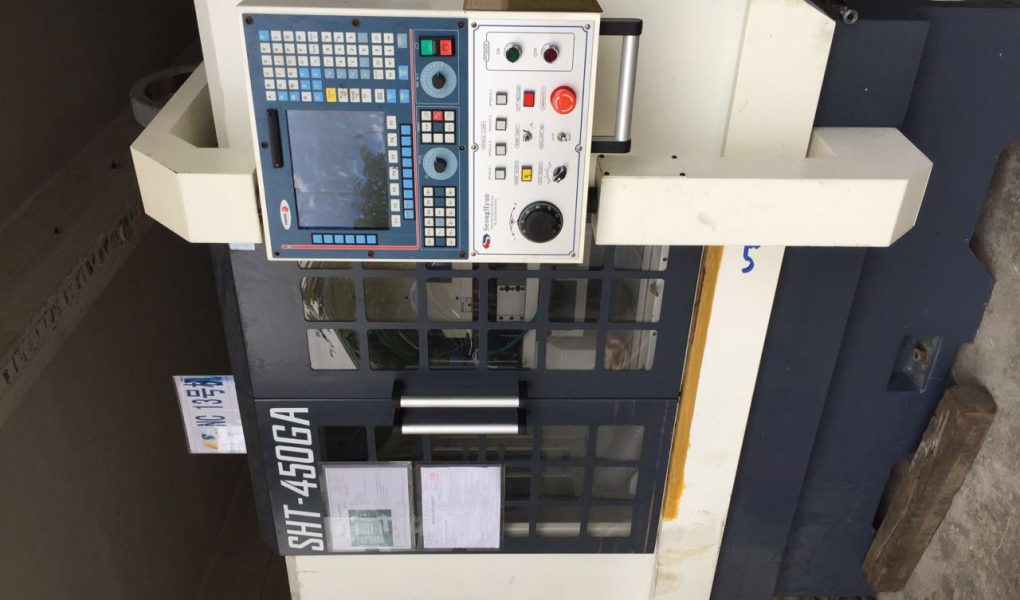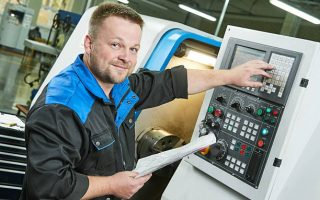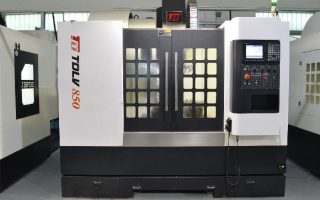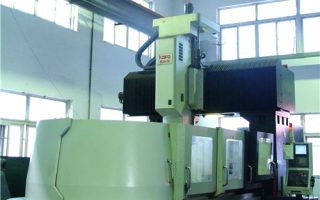
Introduction to Desktop CNC Machines
Desktop CNC (Computer Numerical Control) machines are compact, computer-controlled tools designed for precision manufacturing, prototyping, and crafting. These machines have gained significant popularity due to their affordability, versatility, and ability to fit into small workshops, educational institutions, and even home environments. Unlike industrial CNC machines, desktop CNCs are smaller in size but still capable of performing a wide range of machining tasks such as cutting, milling, engraving, and drilling. They are widely used across various industries, including manufacturing, education, design, and hobbyist projects.
In this comprehensive guide, we will explore the various applications of desktop CNC machines, their benefits, limitations, and the industries they serve. By the end of this article, you will have a thorough understanding of what desktop CNC machines are used for and how they can be a valuable tool in different settings.
How Desktop CNC Machines Work
Before diving into their applications, it is essential to understand how desktop CNC machines operate. These machines use computer software to control the movement of cutting tools along multiple axes (usually X, Y, and Z). The process begins with designing a part or object using CAD (Computer-Aided Design) software. The design is then converted into a set of instructions (G-code) that the CNC machine can interpret. The machine follows these instructions to precisely shape the material into the desired form.
Desktop CNC machines are typically equipped with stepper motors or servo motors to ensure accurate positioning and movement. They can work with a variety of materials, including wood, plastic, metal, and composites. Depending on the type of tool and setup, these machines can perform tasks such as cutting, engraving, milling, and even 3D carving.
Applications of Desktop CNC Machines
Desktop CNC machines are incredibly versatile and can be used for a wide range of applications. Below, we explore some of the most common uses across different industries and sectors:
1. Prototyping and Product Development
One of the primary uses of desktop CNC machines is rapid prototyping. Engineers and designers use these machines to create physical prototypes of their designs quickly and cost-effectively. Prototyping is an essential step in product development as it allows for testing and refinement before mass production. Desktop CNC machines enable the creation of highly detailed and accurate prototypes, making them invaluable for industries such as automotive, aerospace, and consumer electronics.
2. Custom Manufacturing
Desktop CNC machines are ideal for producing custom parts and components in small quantities. This is particularly useful for businesses that require specialized or one-off parts that are not feasible to produce using traditional manufacturing methods. For example, custom jewelry makers can use CNC machines to create intricate designs, while small-scale manufacturers can produce replacement parts for machinery or equipment.
3. Education and Training
Educational institutions, such as schools, colleges, and universities, use desktop CNC machines as teaching tools. These machines provide students with hands-on experience in CNC programming, machining, and design. By working with desktop CNCs, students can learn valuable skills that are directly applicable to careers in engineering, manufacturing, and design. The affordability and compact size of these machines make them accessible to educational facilities with limited budgets and space.
4. Hobbyist and DIY Projects
Desktop CNC machines are popular among hobbyists and DIY enthusiasts who enjoy crafting and building projects at home. These machines allow users to create custom items such as furniture, signs, decorations, and more. The ability to work with various materials and achieve professional-quality results makes desktop CNCs a favorite tool for makers and tinkerers.
5. Engraving and Personalization
Engraving is another common application of desktop CNC machines. Businesses and individuals use these machines to engrave logos, text, and designs onto a variety of surfaces, including metal, wood, glass, and plastic. This capability is particularly useful for creating personalized gifts, awards, and promotional items. Desktop CNCs are also used in the signage industry to produce custom signs and plaques.
6. PCB Manufacturing
Desktop CNC machines are widely used in the electronics industry for manufacturing printed circuit boards (PCBs). These machines can mill and drill PCBs with high precision, making them suitable for prototyping and small-scale production. Engineers and hobbyists can use desktop CNCs to create custom PCBs for electronic devices, reducing the time and cost associated with outsourcing PCB production.
7. Small-Scale Production
While desktop CNC machines are not designed for large-scale manufacturing, they are well-suited for small-scale production runs. Businesses can use these machines to produce limited quantities of products, such as custom tools, fixtures, and consumer goods. This capability is particularly beneficial for startups and small businesses that need to produce high-quality items without investing in expensive industrial equipment.
8. Art and Sculpture
Artists and sculptors use desktop CNC machines to create intricate and detailed works of art. These machines can carve and shape materials with precision, allowing artists to bring their creative visions to life. From wooden sculptures to metal art pieces, desktop CNCs provide a powerful tool for artistic expression.
Advantages of Desktop CNC Machines
Desktop CNC machines offer several advantages that make them appealing to a wide range of users. Some of the key benefits include:
1. Compact Size
The small footprint of desktop CNC machines makes them suitable for use in limited spaces, such as home workshops, classrooms, and small businesses. Their compact size also makes them portable and easy to set up.
2. Affordability
Compared to industrial CNC machines, desktop CNCs are much more affordable, making them accessible to hobbyists, educators, and small businesses. This affordability allows users to experiment and innovate without a significant financial investment.
3. Versatility
Desktop CNC machines can work with a wide range of materials and perform various tasks, including cutting, engraving, milling, and drilling. This versatility makes them suitable for diverse applications across multiple industries.
4. Ease of Use
Modern desktop CNC machines are designed with user-friendly interfaces and software, making them accessible to beginners and experienced users alike. Many machines come with preloaded templates and tutorials to help users get started quickly.
5. Precision and Accuracy
Desktop CNC machines are capable of achieving high levels of precision and accuracy, ensuring consistent results. This is particularly important for applications that require intricate details and tight tolerances.
Limitations of Desktop CNC Machines
While desktop CNC machines offer numerous benefits, they also have some limitations that users should be aware of:
1. Limited Work Area
The small size of desktop CNC machines means they have a limited work area, which may not be suitable for machining large parts or objects. Users must consider the size of their projects when choosing a desktop CNC machine.
2. Lower Power
Desktop CNC machines typically have lower power compared to industrial CNC machines. This can limit their ability to work with hard materials, such as steel or titanium, and may result in slower machining speeds.
3. Durability
Due to their compact design and lower cost, desktop CNC machines may not be as durable or robust as industrial-grade machines. They may require more frequent maintenance and have a shorter lifespan when used for heavy-duty applications.
Conclusion
Desktop CNC machines are versatile and powerful tools that have revolutionized the way individuals and businesses approach manufacturing, prototyping, and crafting. Their compact size, affordability, and ease of use make them accessible to a wide range of users, from hobbyists to professionals. While they have some limitations, such as a smaller work area and lower power, their benefits far outweigh these drawbacks for most applications.
Whether you are an engineer looking to create prototypes, an artist crafting intricate designs, or a teacher educating the next generation of machinists, a desktop CNC machine can be an invaluable addition to your toolkit. By understanding their capabilities and applications, you can unlock the full potential of these remarkable machines and bring your ideas to life with precision and efficiency.




